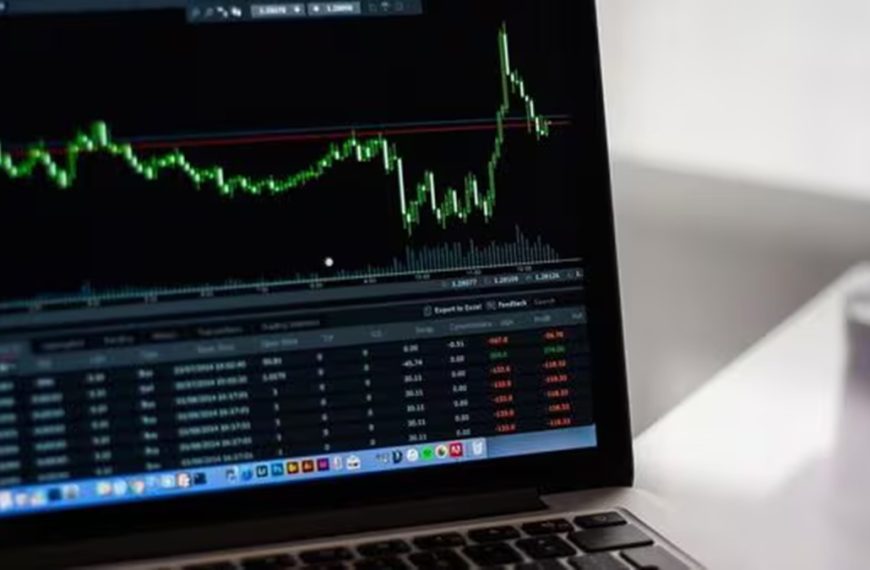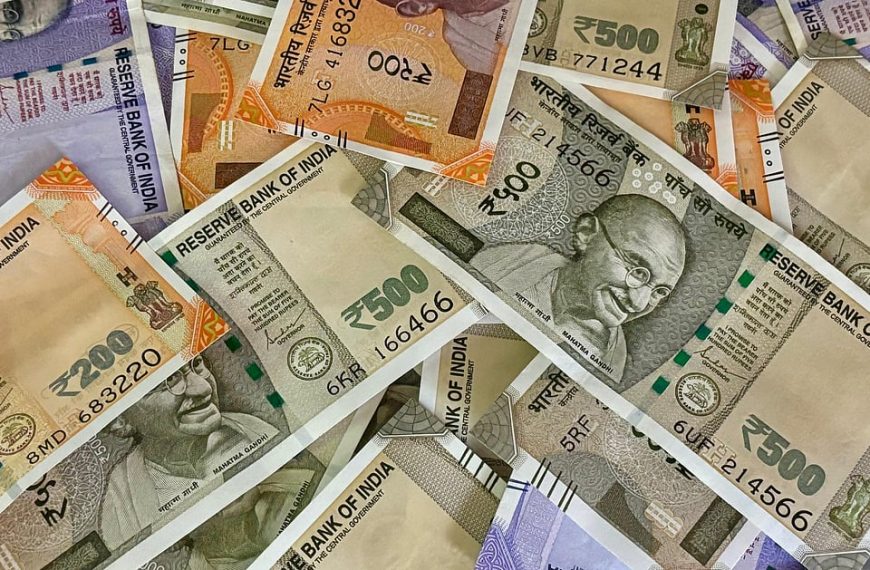The Indian stock market faced a significant downturn on Friday, April 4, following a day of remarkable resilience amid a global sell-off. The benchmark indices took a considerable hit, with the Sensex plummeting over 900 points and the Nifty 50 slipping below 23,000. This decline was primarily influenced by negative global cues, leading to a dramatic loss for investors.
Market Overview: Sensex and Nifty Performance
By the end of the trading session, the Sensex closed at 75,364.69, reflecting a loss of 931 points, or 1.22%. Meanwhile, the Nifty 50 settled at 22,904.45, down 346 points, or 1.49%. Other indices also faced declines, with the BSE Midcap index dropping by 3.08% and the Smallcap index declining 3.43%. Overall, the market capitalization of BSE-listed companies fell to approximately ₹404 lakh crore, marking a staggering loss of over ₹9 lakh crore in just one session.
Factors Contributing to the Market Decline
Several key factors contributed to the sharp drop in the Indian stock market:
1. Trump’s Tariff Warnings
Recent announcements from U.S. President Donald Trump regarding potential new tariffs on pharmaceutical imports created waves in the market. Reports indicate that Trump plans to implement tariffs at unprecedented levels, reversing the earlier exclusion of Indian pharmaceuticals from such measures. This shift has caused a sell-off in pharma stocks, with the Nifty Pharma index nosediving by 6%.
2. Global Market Sentiment
Weak global market indicators significantly impacted the domestic trading atmosphere. Concerns about a global economic slowdown, partly fueled by Trump’s tariff policies, raised alarms about their potential negative effects on the Indian economy. Major U.S. indices, such as the Nasdaq, experienced a sharp decline of 5.97%, while the S&P 500 fell by 4.84% overnight. Additionally, Asian markets like Japan’s Nikkei and Korea’s Kospi also saw declines of over 3% and nearly 2%, respectively.
3. Uncertainty Over Tariff Effects
Experts suggest that while Trump’s tariffs may not directly harm the Indian economy, the uncertainty surrounding their long-term effects is troubling investors. V K Vijayakumar, Chief Investment Strategist at Geojit Financial Services, noted that the ongoing trade war could lead to retaliatory tariffs from countries like China and the EU, extending market instability. He emphasized that the contraction in global trade and slowing growth could adversely affect India, even if it performs better than other major economies.
4. Upcoming Q4 Earnings Reports
Amid the turmoil, investors are also keeping a close eye on the upcoming quarterly earnings reports from Indian companies. The IT giant TCS is set to release its December quarter figures next Thursday, April 10. Investors are hopeful for stable or improved results, especially given the lackluster performance in previous quarters. Disappointing results could trigger further selling pressure in the market.
5. Inflation Concerns
Market analysts are also wary of rising inflation risks due to Trump’s tariffs, which could influence the U.S. Federal Reserve’s monetary policy. Morgan Stanley recently indicated that the Fed is unlikely to cut interest rates this year, potentially leading to foreign capital outflows and currency depreciation in India.
Conclusion
The Indian stock market’s recent turmoil highlights the interconnectedness of global events and domestic finance. Investors are navigating a landscape filled with uncertainty, influenced by external policies and internal economic indicators. As the situation evolves, market participants will be closely monitoring developments, especially the upcoming earnings reports and the impact of international trade policies. For ongoing updates and insights, stay tuned to our market-related news.











